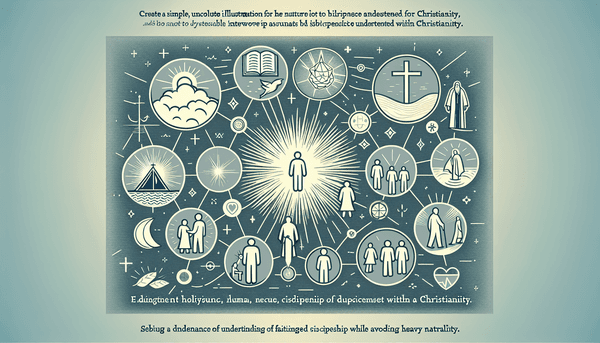The Power of Words According to the Bible
The Bible speaks volumes about the impact of our words and their ability to influence the lives of others. It teaches us that with the same tongue, we can praise our Lord and also curse those made in His likeness, a duality that is addressed in James 3:9-10. This scripture reveals the inherent power in our speech and the responsibility we bear. Ephesians 4:29 further admonishes believers not to let any unwholesome talk emerge from their mouths, but rather to speak only what is beneficial for building others up. Words have the potential to heal or harm, as Proverbs 18:21 suggests, giving life or death through the power of the tongue. Therefore, Christians are encouraged to speak with kindness and consideration, reflecting the love of Christ in every word.
Approaching the Bible: Reading and Understanding
Understanding the Bible begins with a structured approach to its reading. Many find starting with the New Testament, particularly the Gospels and Acts, provides a foundational understanding of Jesus' life, ministry, and the early church's development. This is supported by John 20:31, which explains that these writings were composed so that readers may believe in Jesus Christ, the Son of God. Transitioning to the Old Testament, with its historical and poetic books, offers a backdrop to the New Testament teachings and prophecies fulfilled in Christ. Acts 17:11 commends those who received the word with eagerness and examined the Scriptures daily. The Bible encourages group study and discussion, as believers can enrich their understanding through shared insights, guided by verses such as Psalm 119:105 and 2 Timothy 2:15, which emphasize the importance of God's Word as a light for our path and a tool for rightly dividing the truth, leading to deeper spiritual wellbeing and growth as discussed in our article on embracing forgiveness and renewal.
Conclusion
Our journey through the profound teachings of the Bible reveals a tapestry of historical context, spiritual truths, and practical guidance. From the core beliefs of Evangelical Christianity to the nuances of language and conduct, Scripture offers a blueprint for living a life in alignment with God's will. The celebration of Jesus' birth, the understanding of biblical lands, and the encouragement to read and comprehend the Bible are all integral elements of a vibrant faith. As we explore the Christian art of communication and community, let us do so with hearts open to the transformative power of God's truth, seeking to apply its lessons to every aspect of our lives.
FAQ
Q: What is the correct order to read the Bible?
A: While there is no one \"correct\" order to read the Bible, a common recommendation is to begin with the New Testament, starting with the Gospels and Acts, to understand the life and teachings of Jesus and the early church. Then, proceed to the Old Testament to gain historical context and insight into the prophecies fulfilled in the New Testament.
Q: Is cursing a sin?
A: The Bible doesn't provide a list of specific words that are considered sinful, but it does emphasize the importance of our speech and how it affects others. Ephesians 4:29 and James 3:9-10 encourage believers to use their words for building up and not cursing, suggesting that the spirit behind cursing is contrary to biblical teaching.
Q: Why do we celebrate Jesus' birth on December 25th?
A: Although the exact date of Jesus' birth is not stated in the Bible, December 25th was chosen by the early church to commemorate His birth. This date aligns with the fulfillment of Old Testament prophecies and has become a tradition in the Christian faith to celebrate the incarnation of Jesus Christ.
Q: What are the Evangelical beliefs?
A: Evangelicals believe in the Trinity, the virgin birth of Jesus, salvation through faith in Christ alone, His atoning death and resurrection, and the authority of the Bible as God's inspired Word. These beliefs are rooted in biblical passages such as John 3:16, 1 Corinthians 15:3-4, and Ephesians 2:8-9.






